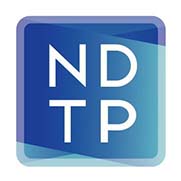Basic Training in Medical Ophthalmology
Overview
The Medical Ophthalmology Curriculum is a five-year competence-based curriculum consisting of three basic years (BMT1, BMT2 & BMT3) followed by two years (HMT4 & HMT5) of subspecialty training in paediatrics, glaucoma and medical retina.
The purpose of the basic foundation years is to provide a broad based initial training in ophthalmology with attainment of knowledge, skills and professional behaviours relevant to the practice of ophthalmology in any specialist discipline.
The National Training Programme in Medical Ophthalmology is the route to qualification as a Medical Ophthalmologist in Ireland. Medical Ophthalmology is predominately an out-patient based specialty with a varied work-load including laser sessions, minor-op sessions, and injection sessions while incorporating new technological and ophthalmic advances, including the development of Integrated Eye Care Teams.
Entry on to the programme is by interview held at the Irish College of Ophthalmologists. Successful candidates are appointed to the basic training program for a three-year period. Trainees rotate around the clinical training sites and contracts of employment are issued by the relevant hospitals. Trainees are rotated to a new team every 6 months in order to acquire the skills and competencies required to successfully complete BMT.
Following successful completion BMT1 –BMT3 Training (requires passing the MRCSI exam) candidates can compete to enter higher Training in Medical Ophthalmology HMT4 – 5.
The ICO is seeking the next generation of leaders and specialists to join our National Training Programme in Medical Ophthalmology, opening the door to a fulfilling career as a Consultant Medical Ophthalmologist.
Further information on how to apply and details on the scorecard for entry to BMT is available below under “Application & Entry”.
Application & Entry
Entry on to the National Training Programme (NTP) in Medical Ophthalmology is by annual competitive interview run by the Irish College of Ophthalmologists. Available posts are advertised via this website in November/December of each year.
To apply for the NTP in Medical Ophthalmology a trainee needs to be registered with the Medical Council of Ireland and eligible for trainee specialist registration.
Successful candidates are appointed to the training programme for a three year period. Trainees rotate around the clinical training sites and contracts of employment are issued by the relevant hospitals.
Entry on to the Programme is by competitive interview held at the Irish College of Ophthalmologists. Your Undergraduates performance together with your personal and professional attributes, such as, ability to work as a team, communications skills and personal motivation, are all relevant.
- Applicant Guide ICO NTP Basic Specialist Training in Ophthalmology
- Overview of online BMT application form 2025
- Scorecard for Basic Specialist Training in Medical Ophthalmology for July 2025
- Applicant Checklist Basic Specialist Training 2025
- Eligibility for trainee specialist division
- Medical Council notice on eligibility for trainee specialist division
- English Language requirement
- Allocation of places
- Frequently Asked Questions
Specialist Training Programmes in Ophthalmology
Ophthalmology Application Scorecard
Curriculum
Basic Training in Medical Ophthalmology BMT1, BMT2, BMT3.
The purpose of the first three years of Basic Training in Medical Ophthalmology is to provide a broad based initial training in ophthalmology with attainment of knowledge skills and professional behaviours relevant to the practice of ophthalmology in any specialist discipline. Following successful completion of BMT1, BMT2 & BMT3 (requires passing the MRCSI (ophth) exam), candidates can compete to enter higher training in Medical Ophthalmology HMT4 - 5
Basic Training is based on a clearly defined curriculum which sets out:
- Training structure and pathway
- Educational content
- Assessment and appraisal processes
- Examination format and regulations
- Counselling and support arrangements
- Multidisciplinary team working
- Professional behaviour/ethical practice
- Pattern of life-long learning
There are clearly defined competencies which must be achieved in order to progress to the next phase of training. This curriculum defines the principles and practice of Basic Training BMT1 - BMT3.
Download the Medical Ophthalmology curriculum (PDF Document)
Flexible Training
The medical workforce is changing and, over recent years, numerous reports have pointed to the importance of providing flexible working arrangements for doctors. The HSE National Flexible Training Scheme for Specialist Trainees is a national scheme managed and funded by NDTP for supernumerary posts. The scheme facilitates doctors to continue their training in a flexible manner for a set period of time. The HSE National Flexible Training Scheme Guide sets out details of the National Flexible Training Scheme and provides information for trainees, training bodies and employers about the programme.
If you wish to apply to the HSE National Flexible Training Scheme please complete and submit the application form. Applications for the scheme are open from 2nd September to 8th November 2024.
Funding Support
Financial Supports
There are currently three schemes in operation which provide financial supports to NCHD's and Consultants, funded by the NDTP.
Details of the schemes can be found on the HSE website .

